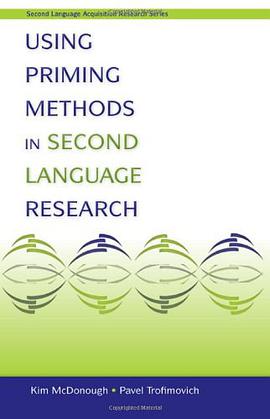

具体描述
Jean-Paul Sartre was one of the most distinctive and vociferous social critics of the twentieth century. As editor of the French post-war journal "Les Temps Modernes", Sartre was able to complement his literary and philosophical views with essays devoted to practical ethical and political issues. The post-war era was one of the most fruitful, exciting and daring periods for Sartre's thinking. His published and unpublished works disclose a striking feature of Sartrean existentialism. The commonly-held view is that existentialism champions radical individualism and disparages community, social roles and civic participation. This book challenges this received wisdom, showing that Sartrean existentialism is in fact a deeply social philosophy. T. Storm Heter demonstrates the vitality of Sartre's landmark essays 'What is Literature?' and 'Anti-Semite and Jew', and reveals the importance of the 'Notebooks for an Ethics', a rich and often ignored manuscript containing Sartre's most extensive discussion of ethical and political concepts. Drawing on these sources, Heter argues that Sartrean authenticity is an ethically and politically important virtue. Contrary to popular belief, the virtue of authenticity is not a mere codeword for sincerity and personal acceptance. Authenticity requires interpersonal recognition and group participation. We cannot be authentic in a vacuum, for the very dynamic of authenticity requires that others recognize our authentic identities. This book not only defends Sartrean ethics against charges of formalism, emptiness and extreme subjectivism, but also shows that authenticity is an important civic virtue, relevant to the social and political institutions of the modern world.
作者简介
目录信息
读后感
评分
评分
评分
评分
用户评价
这本书的文笔有一种奇特的、近乎诗意的冷峻感,让人在被其思想的深度震撼之余,也为其语言的精准度所折服。它很少使用那些华丽的辞藻来掩饰其核心的论点,反而倾向于用短促、有力的句子来构建起层层递进的论证。我特别关注到作者对“行动的不可逆性”这一主题的深入挖掘,这部分内容与我们当下所处的这个信息瞬息万变、责任容易被稀释的时代形成了强烈的对照。作者似乎在提醒我们,每一个选择都带着一种无法挽回的重量,这种重量并非来自外部的惩罚,而是源于行动者自身对“自我定义”的承诺。在阅读过程中,我时常会想象作者是如何在案头反复推敲某个措辞的——每一个名词的选择似乎都经过了审慎的考量,以避免落入任何一种现有的哲学窠臼。这本书的结构组织非常精巧,每一章节都像是一个独立而完整的论证单元,但同时又紧密地服务于全书宏大的主题。它更像是为严肃的思考者准备的一部深度指南,要求读者全身心地投入到对自身境况的严肃反思之中。
评分我带着一种近乎朝圣的心态来阅读这部作品,期待能从中找到一条连接理论与实践的坚实桥梁,而这部书的表现远超我的预期,因为它压根儿就没有试图建造一座“坚实”的桥梁,而是展示了桥梁在持续的张力下如何维持其功能。作者对“历史性”的理解,摒弃了那种线性的进步史观,转而将其视为一个充满断裂、偶然和主体间性协商的战场。这种处理方式,使得书中的讨论立刻具有了强烈的时效性和紧迫感。与那些只停留在对既有理论进行梳理和总结的著作不同,这本书的核心在于其强大的“转化能力”——它能将抽象的哲学概念,比如“真实性”或“承诺”,瞬间转化为对个体日常决策的尖锐拷问。在处理社会不公和个体责任关系的部分,作者展现出一种既保持批判的距离感,又充满人道主义关怀的微妙平衡。这种平衡感并非易事,但作者却驾驭得游刃有余,使得全书读起来既有理论的厚度,又不失情感上的共鸣,这实属难得。
评分读完这本书,我最大的感受是,它像是一次对现代性承诺的深入“体检”,尤其是在探讨个体在宏大历史叙事中的定位时,那种处理方式的细腻和不落俗套令人印象深刻。作者巧妙地编织了多个看似不相关的案例——也许是关于某个历史事件的再解读,也许是对某种艺术表达的剖析——来支撑其关于“投身性”(engagement)的论述。这种非线性的叙事结构,初看之下略显晦涩,但细细品味后,便能体会到其匠心独明之处:真正的“投入”从来都不是单向度的灌输,而是一个充满回响和反作用力的过程。它不是关于成为什么样的人,而是关于“如何持续地成为”的过程。书中对于“他者”的复杂性分析,尤其值得称道,它超越了简单的二元对立,深入到权力、语言和认同是如何在互动中不断生成和瓦解的层面。我感觉作者仿佛是一位经验丰富的船长,带领我们穿梭于当代伦理的迷雾之中,没有提供一张完美的航海图,却教会了我们如何根据星辰和洋流来修正航向。这本书的价值在于,它提供的不是答案,而是一种更具韧性和反思性的提问方式。
评分坦白说,这部作品的阅读体验是“颠覆性”的,它没有提供任何现成的慰藉,反而像是一位严格的导师,不断地敲打着读者对于“意义是如何被创造”这一问题的固有认知。作者对于“主体性”在行动中被不断重塑的过程的描述,具有极强的画面感和动感。我被书中对“等待”与“介入”之间辩证关系的分析所深深吸引。它探讨了在面对巨大、看似不可撼动的结构性问题时,个体“不作为”的伦理含义,以及“恰当的时机”在伦理行动中的悖论。这种对时间维度上行动的哲学考察,是许多当代伦理学著作所欠缺的深度。阅读此书的过程,就像是进行一场漫长而艰苦的智力攀登,每完成一个章节,都能感受到思维疆域的拓展,虽然伴随着疲惫,但最终的视野是开阔的。这本书的真正力量不在于它说了什么,而在于它在你心中“引发了什么”——它成功地激发了我对自身存在状态的深度质疑,这本身就是一种极高价值的阅读回报。
评分这部作品仿佛是一面多棱镜,折射出存在主义哲学在当代社会语境下所能承载的全部重量与复杂性。作者并未试图提供一套现成的道德操作手册,恰恰相反,他/她以一种近乎解构的方式,将“行动”本身置于显微镜下进行审视。初读之下,那种强烈的思辨压力会让人不禁停下来,反思自己日常生活中那些看似理所当然的选择背后,究竟隐藏着多少未经审视的预设。我尤其欣赏作者在处理“自由的重负”这一核心议题时的那种毫不妥协的锐利感。他/她似乎在不断地追问:当我们声称自己是“自由”的时候,我们究竟是在为谁承担责任?这种追问并非简单的哲学游戏,而是深入到个体与群体关系、个体与历史进程交织的复杂网络之中。全书的行文风格时而如同严谨的逻辑推演,时而又转向充满激情的辩论,这种张力使得阅读过程充满了智力上的挑战与满足。它迫使读者跳出舒适区,去直面人类境遇中那些最根本的、最令人不安的难题,比如如何在一个破碎的世界中构建意义,以及如何将纯粹的意图转化为有社会效力的实践。这本书对于那些厌倦了肤浅的“积极心理学”和僵化的规范伦理的人来说,无疑是一剂强效的清醒剂。
评分 评分 评分 评分 评分相关图书
本站所有内容均为互联网搜索引擎提供的公开搜索信息,本站不存储任何数据与内容,任何内容与数据均与本站无关,如有需要请联系相关搜索引擎包括但不限于百度,google,bing,sogou 等
© 2026 book.wenda123.org All Rights Reserved. 图书目录大全 版权所有




















